Health
-

6 keys to a long, healthy life (ice cream included)
Also, why reading Ben Franklin beats climbing Mount Everest
-

Six cancers rising faster in younger adults than older ones
Large new global study fuels growing concern over trend of increases in several types

-

What’s next for GLP-1s?
Scientists eye new treatment targets for popular weight-loss drugs, from heart failure to addiction
-

Pricey blockbuster GLP-1s are costing users — and most of the rest of us, too
Health insurers are passing along cost for coverage in form of higher rates across the board, policy researcher says
-

Drinking 2-3 cups of coffee a day tied to lower dementia risk
Caffeinated tea also found to slow cognitive decline in study

-

New AI tool predicts brain age, dementia risk, cancer survival
Unlike other AI models, BrainIAC needs limited data to ID key neurological health indicators

-
Light used to map effect of neurons on one another
Harvard scientists have used light and genetic trickery to trace out neurons’ ability to excite or inhibit one another, literally shedding new light on the question of how neurons interact…
-
Want to live well?
Harvard faculty members from a range of fields give tips on how to live healthy.

-
Shifts in health care landscape
Harvard School of Public Health Dean Julio Frenk delivered the Barmes Global Health Lecture Dec. 15 at the National Institutes of Health in Maryland, saying that new challenges and opportunities face the global health community amidst a changing health care landscape.

-
Turning genetic trash to treasure
John Rinn, a researcher at Harvard Medical School, the Beth Israel Deaconess Medical Center, and the Broad Institute, overcame a rocky start in life through a passion for biology and discovered a new category of RNAs.
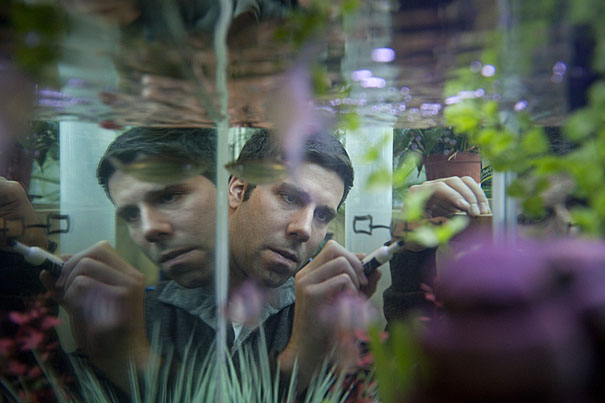
-
Forward into the past
As it celebrates its 150th anniversary, the Museum of Comparative Zoology is acknowledging its past and looking to its future as a source of zoological knowledge.

-
Obesity trends will snuff out health gains from decline in smoking
If obesity trends continue, the negative effect on the health of the U.S. population will overtake the benefits gained from declining smoking rates, according to a study by Harvard and…
-
Mesoamerican health plan
Jaime Sepulveda, former Mexican health official and a current director at the Gates Foundation, outlined plans to improve health for the poorest residents of Mesoamerica.

-
The deciding factor
What, exactly, distinguishes humans from apes? It’s certainly more than just our genes, renowned anthropologist Sarah Blaffer Hrdy. Hrdy, who received her A.B. in 1969 and Ph.D. in 1975 for work in Harvard’s Department of Anthropology, returned to speak on “Mothers and Others: The Origin of Emotionally Modern Humans.”
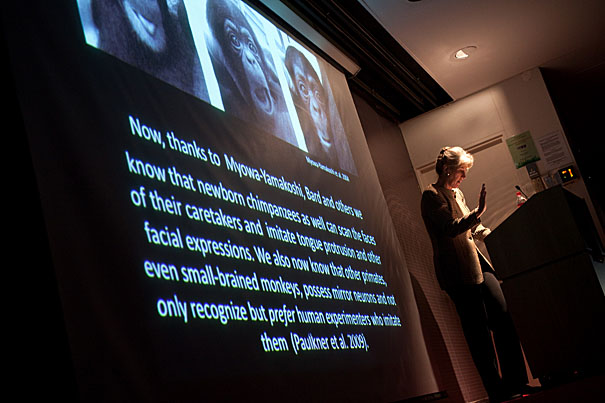
-
Cancer vaccine success
A cancer vaccine carried into the body on a carefully engineered, fingernail-sized implant is the first to successfully eliminate tumors in mammals, scientists report this week (Nov. 25) in the journal Science Translational Medicine.

-
First cancer vaccine to eliminate tumors in mice
A cancer vaccine carried into the body on a carefully engineered, fingernail-sized implant is the first to successfully eliminate tumors in mammals, a team of Harvard bioengineers and biologists report…
-
Help from Shore
Yasuko Nagasaka is among 81 recipients awarded a Shore Fellowship. Such grants can be used for “mini-sabbaticals” by junior faculty who do not yet have independent funding.
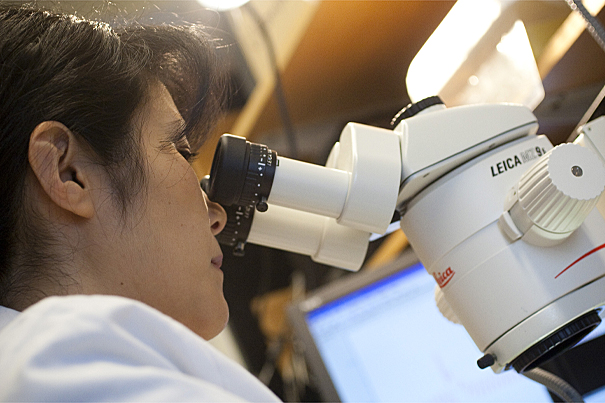
-
Researchers ‘NOTCH’ a victory in war on cancer
Normal 0 0 1 819 4673 38 9 5738 11.1282 0 0 0 Scientists have devised an innovative way to disarm a key protein considered to be “undruggable,” meaning that…
-
Speeding new medicines and technologies to the developing world
A consortium of Harvard and five other leading research universities and the Association of University Technology Managers (AUTM) have endorsed a far-reaching “Statement of Principles and Strategies for the Equitable…
-
Breast cancer: Scourge of developing world
Three-day symposium opens, focusing attention on the rise of breast cancer in developing nations, even as resources are scarce to contain it.
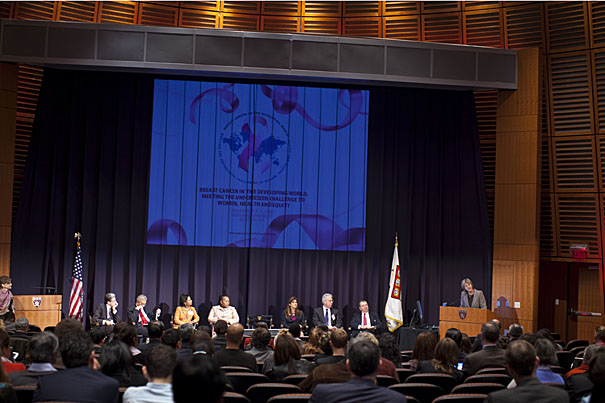
-
Caught in the act
Breaking up may actually not be hard to do, say scientists who’ve found a population of butterflies that may be on its way to a split into two distinct species.

-
Orphan army ants adopted
Colonies of army ants, whose long columns and marauding habits are the stuff of natural-history legend, are usually antagonistic to each other, attacking soldiers from rival colonies in border disputes that keep the colonies separate. But new work by a researcher at the Harvard Museum of Comparative Zoology and colleagues at the University of Copenhagen shows that in some cases the colonies can be cooperative instead of combative.

-
Orphan army ants join nearby colonies
Normal 0 0 1 415 2369 19 4 2909 11.1282 0 0 0 Colonies of army ants, whose long columns and marauding habits are the stuff of natural-history legend, are…
-
Health progress for women
Julio Frenk, dean of the Harvard School of Public Health, touts global progress on women’s health issues, though more challenges lie ahead.

-
Venomous bite
Biologists have shown that independent but similar molecular changes turned a harmless digestive enzyme into a toxin in two unrelated species — a shrew and a lizard, giving each a venomous bite

-
Darkness with the light
Adult survivors of childhood cancer have an increased risk of suicidal thoughts, even decades after their cancer treatments have ended, according to a study led by Harvard researchers at Dana-Farber…
-
Finding the seat of language?
A team of Harvard and University of California, San Diego (UCSD), researchers report having pinpointed an area of the brain where three essential components of language — word identification, grammar,…
-
Nanowires go 2-D, 3-D
Taking nanomaterials to a new level of structural complexity, scientists have determined how to introduce kinks into arrow-straight nanowires, transforming them into zigzagging two- and three-dimensional structures with correspondingly advanced functions.

-
Death by denial
Session examines harm done by those who, fueled by the Internet and selective evidence, say AIDS is not caused by the HIV virus.
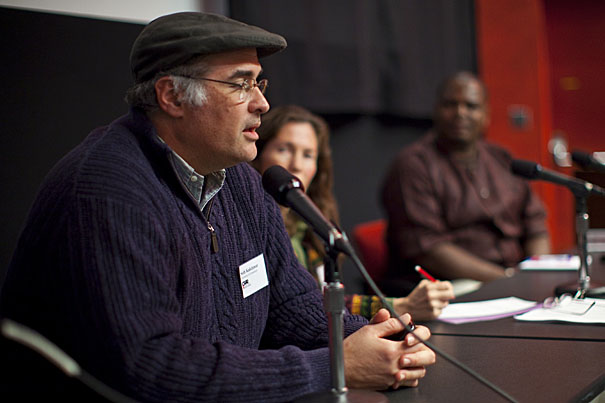
-
Researchers exploit genetic ‘co-dependence’ to kill treatment-resistant tumor cells
Cancer cells fueled by the mutant KRAS oncogene, which makes them notoriously difficult to treat, can be killed by blocking a more vulnerable genetic partner of KRAS, report scientists at…
-
From stem cells to heart muscle
A team of Harvard Stem Cell Institute researchers at Massachusetts General Hospital and collaborators at Harvard’s School of Engineering and Applied Sciences has taken a giant step toward possibly using human stem cells to repair damaged hearts.
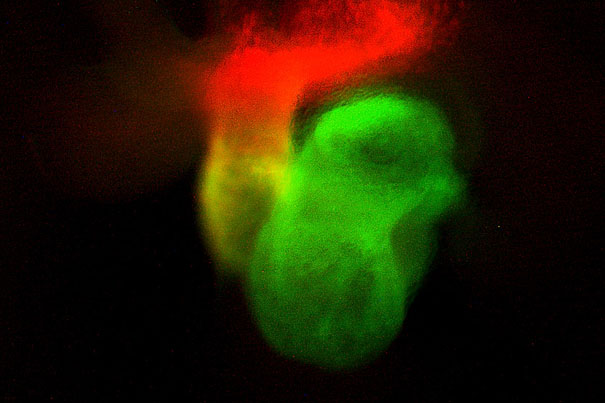
-
From stem cells to functioning strip of heart muscle
A team of Harvard Stem Cell Institute (HSCI) scientists at Massachusetts General Hospital (MGH) and collaborators at Harvard’s School of Engineering and Applied Sciences (SEAS) has taken a giant step toward…
-
Plant diversity, altitude leave collectors breathless in China
China’s Hengduan Mountains are a biodiversity hotspot; so the Harvard Herbaria’s Dave Boufford and a team of colleagues went there and discovered 30 new species.
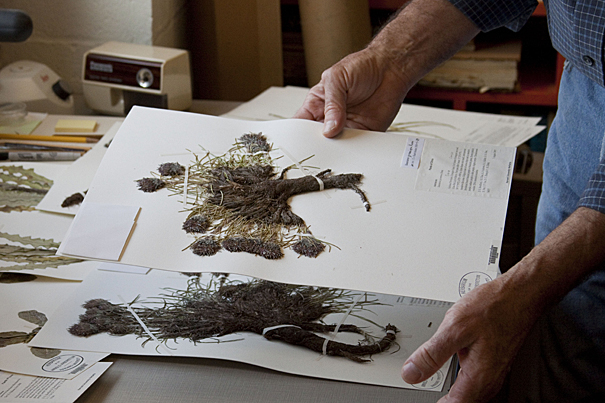
-
What makes a successful society?
New research argues that the health of the population and the success or failure of many public health initiatives hinge as much on cultural and social factors as they do on doctors, facilities, or drugs.
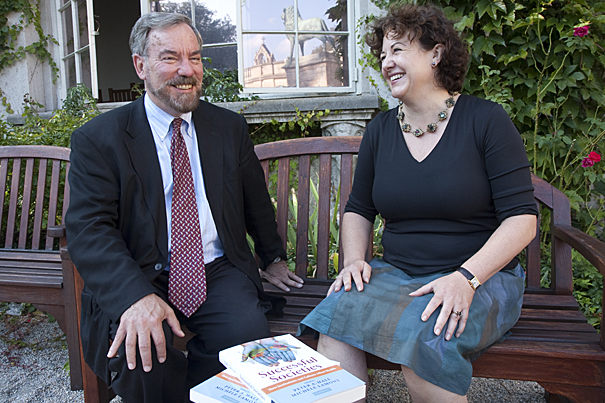
-
For economic success, channel your inner bonobo
Psychology Professor Marc Hauser dispels misconceptions about human and ape behavior with regard to patience, impulsiveness, and economic interactions in Harvard Museum of Natural History talk.
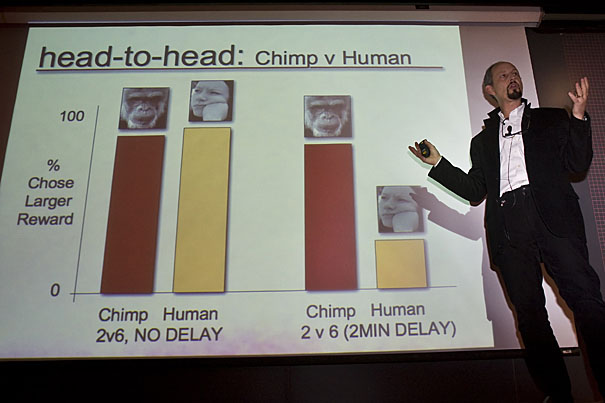
-
Three-dimensional structure of human genome deciphered
Scientists have deciphered the three-dimensional structure of the human genome, paving the way for new insights into genomic function and expanding our understanding of how cellular DNA folds at scales…

